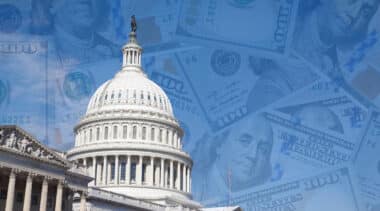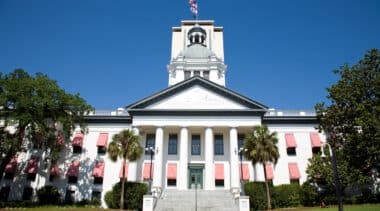-
Instead Of Tax Increases, President Biden Should Cut Spending And Use Public-Private Partnerships
Infrastructure projects that are paid for by users, not by federal taxes, can be a big boost to the economy.
-
Return the Highway Trust Fund to its Original Users-Pay/Users-Benefit Principle.
Virtually all of the so-called shortfall in the Highway Trust Fund is due to Congress spending money on non-highway programs.
-
Don’t Buy the Myth that the Florida Retirement System Is Fine
FRS had an unfunded liability of $36 billion as of last year.
-
COVID-19 Pandemic Response Illustrates Need for Better State and Local Financial Data
If every state, major city, and county produced monthly cash reports in a standardized, machine-readable format within two weeks of month-end, federal policymakers would have a much better picture of how revenues and expenditures are evolving.
-
More Census Data Shows Government Tax Revenue Hasn’t Been Negatively Impacted By COVID-19
The Census Bureau estimates 2020 aggregate state and local tax revenues of $1.62 trillion, or about 2 percent above the 2019 total of $1.59 trillion.
-
How to Make the Florida Retirement System Investment Plan an Effective Retirement Plan
Florida's current defined contribution retirement option does not meet the needs of public employers and employees.
-
Texas Bill Threatens Houston’s Financial Wellbeing
Legislation to grant mandatory arbitration privileges to the Houston Fire Department could have severe negative impacts on Houston's finances.
-
Gov. Newsom’s Misguided Proposal for California’s Education Funding Formula
The key to promoting both flexibility and fairness is better transparency and California can do this with better data, not more bureaucracy.
-
High-Speed Rail Is Unlikely to Play a Major Role In Achieving Climate Goals
Be wary of high-speed rail's potential to fight climate change or replace automobile and air travel in cost-effective ways.
-
Arkansas’ School Funding System Is in Need of Reform
Simply pouring more money into a broken school finance system will not help the students most in need of educational assistance.
-
Oklahoma’s Outdated Education Funding System Is Costing Students Hundreds of Millions of Education Dollars Each Year
Education dollars should follow students to the school they are actually attending.
-
Without More Reforms, the Florida Retirement System’s Future Looks Bleak
The Florida Retirement System's debt may spike to $80 billion by the year 2050.
-
Virginia’s Drug Law Enforcement Disproportionately Impacts Black Citizens
Black Virginians have a much higher likelihood of a drug arrest turning into a court proceeding than white residents in Virginia.
-
California’s Pension Debt Takes Money From Classrooms and Students
The rising cost of pension debt crowds out the education budget, diverting funds away from classrooms.
-
Should Freight Train Crew Sizes Be Regulated?
Part seven of Reason's Debatable Ideas series examines crew-size minimums.
-
Is Level of Service or Vehicle-Miles Traveled a Better Way to Measure Traffic Congestion?
Part six of Reason's Debatable Ideas series examines the best method to analyze travel times and traffic congestion in a region.
-
The Unintended Consequences of Minimum Wage Hikes and Trade Restrictions
It's important to consider the negative consequences populist policies can have on workers and consumers.
-
Rethinking Public Employee Retirement Plans
Combining elements of traditional pension plans and defined contribution retirement plans could create a new public retirement model that better serves taxpayers, employers and employees.

















